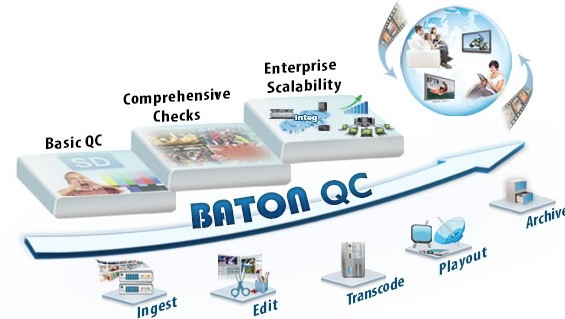Studios Seek VOD Deliverance from Digital
Question: How many studio executives does it take to change a lightbulb?
Answer: One. He merely grasps the lightbulb firmly, and the universe revolves around him.
Okay, that's not very fair. Music industry executives were the ones who got clobbered by Napster. After more than a decade building what they believed were unassailable, vertically integrated conglomerates, allowing them to make compact discs for $.50 and sell them for $15.99, they stood frozen in headlights as peer-to-peer file sharing sucked their revenues. Even the recent couple hundred lawsuits against file sharers haven't muted the giant sucking sound.
But Hollywood comes a close second in the P2P idiocy department. Fearing digital copying and piracy and hoping to eliminate the middleman, the studios have stood on the sidelines for more than two years while cable operators selling VOD tried to get rights for first-run theatricals. No way, Tinseltown said, we want to keep our pay-per-view, DVD sales and rental streams healthy, and keep our best product from DVD copying. It's no surprise, then, that consumers have been slow on the uptake with VOD.
CHARTING THEIR OWN PATH
Having ignored the logic that felled the music industry heavy MP3 downloaders are actually more inclined to purchase CDs, according to Forrester Research these studio bosses now want to make their own VOD push.
In recent weeks Disney corp. revealed plans to test its new VOD service, MovieBeam, which bypasses the PC, cable and the Internet by using datacasting to deliver an over-the-air signal to a TiVo-like set-top box manufactured by Samsung. With no broadband or narrowband connection MovieBeam subscribers will be able to pick from 100 films that can be downloaded at any time, and pay $2.49 to $3.99 per film to watch as often as they like during a 24-hour period before the film disappears.
Movielink, the VOD-over-Internet venture backed by Disney and five other major studios, MGM, Paramount, Sony Pictures, Warner Bros. and Universal, launched last year and has been making its own news, including a co-branded service with Time Warner Cable's Road Runner through which Road Runner's three million customers can download and rent films. Customers can download films under a pricing system similar to MovieBeam's.
Each service claims to have sufficient encryption schemes in place to block even the savviest hacker from digital content copying.
VOD over the Internet is poised to get a massive in-home boost, courtesy of Microsoft.
The studios, along with top PC manufacturers, are now moving toward alliances with Microsoft's recently launched Windows XP Media Center Edition 2004, which backers hope will play a key role in delivering the PC-downloaded films to TVs throughout the home. Already, Movielink and rival VOD-over-Internet service CinemaNow, as well as now-legitimate music service Napster, have partnered with Media Center. With Media PCs dropping under $1,000 in price, backers are hoping for marketplace traction.
Why the sudden surge of urgency?
Well, it's not just about money. Or maybe it's all about money.
Analysts say studios and other VOD providers are trying to capitalize on a burgeoning broadband market-roughly 20 million U.S. homes are now wired for speed.
There's also been enormous revenue pressure after a dismal box office summer and overall industry slump.
But perhaps those executives have noticed a more disturbing trend: the heaviest Internet file downloads are of newer versions of Kazaa, Grokster and other P2P programs optimized for video. Add those to the booming sales of DVD burners and you get the real P2P picture: Hollywood needs to act now or forever rest in peace.
CONFLICTED INDUSTRY
Some leading luminaries have been candid about the failure of the ostrich head-in-the-sand approach to P2P. Bill Gates at the cable industry's National Show this summer talked about enabling legal behavior before illegal behavior becomes habitual. Hyping films while simultaneously limiting access makes no sense, Disney head Michael Eisner said at his MovieBeam announcement last month.
"We are a conflicted industry," Eisner said. "Hollywood studios spend enormous sums of money encouraging people to see its films and TV shows and then spend more money devising ways to control and limit how people can see its films and TV shows."
All that conflicting is about to get worse.
Media Center software offers the ability to copy and burn digital content to a DVD or CD. What's to stop a DVR owner from copying a pay channel movie, or cracking a DVD, then sharing that content over the Internet?
Microsoft says it is integrating technology to make it more difficult to pirate copyrighted material, and backs the CGMS/A standard securing DVR-recorded content. It's even reviewing so-called "forensic watermarking" technology that allows a copyright holder to track content.
The potential imbroglio illustrates how far studios, distributors and technology providers have yet to progress in copyright protection agreements. The logic of enabling legal content use is unassailable, as is the illogic of limiting it.
If only logic had anything to do with it.
You can reach Will at willworkman@hotmail.com
The professional video industry's #1 source for news, trends and product and tech information. Sign up below.
